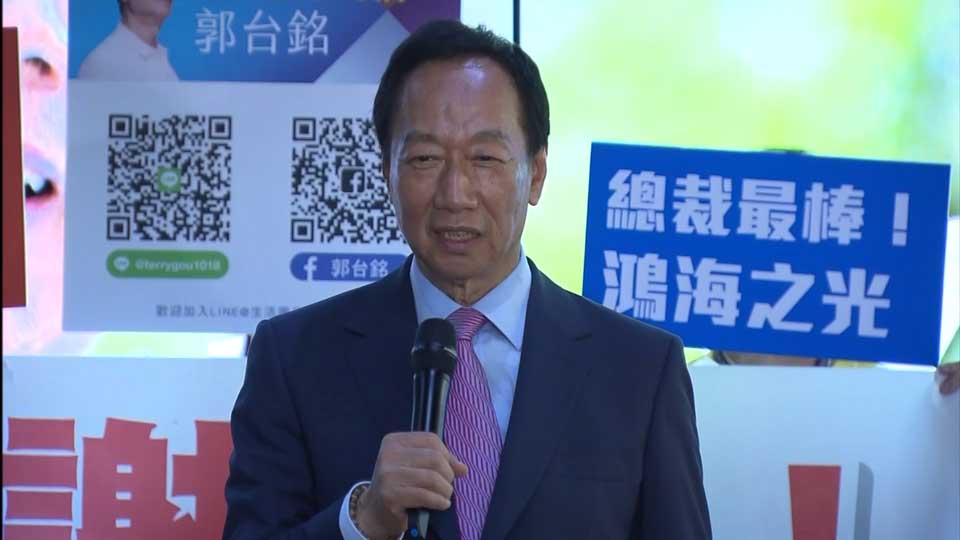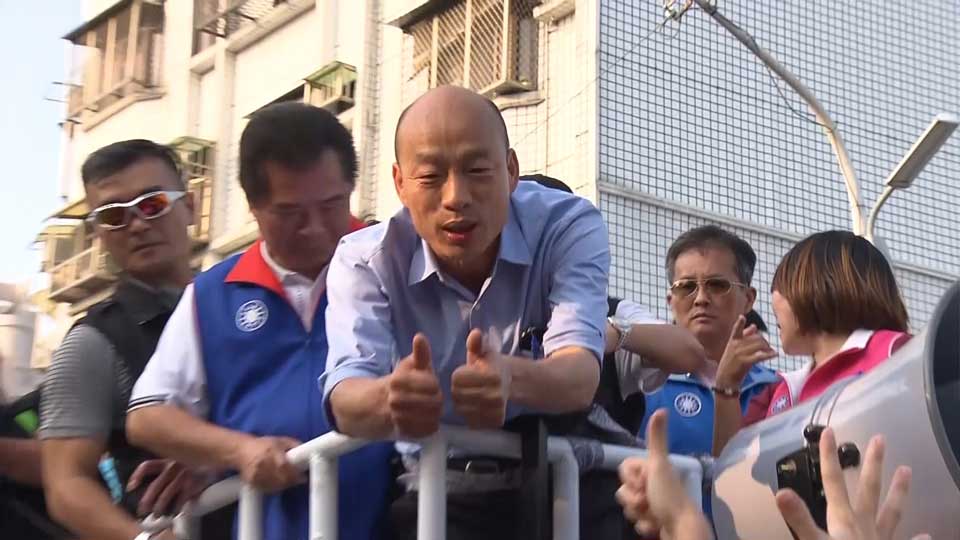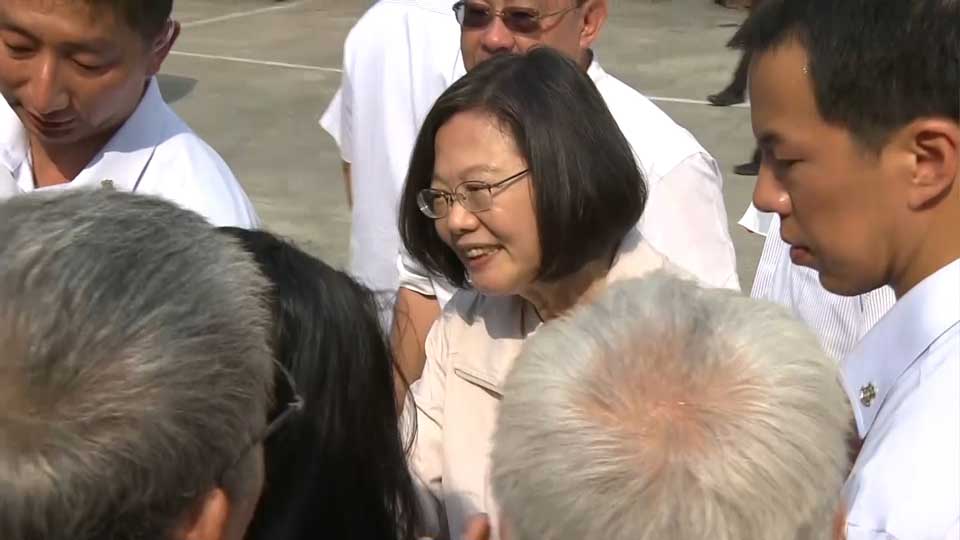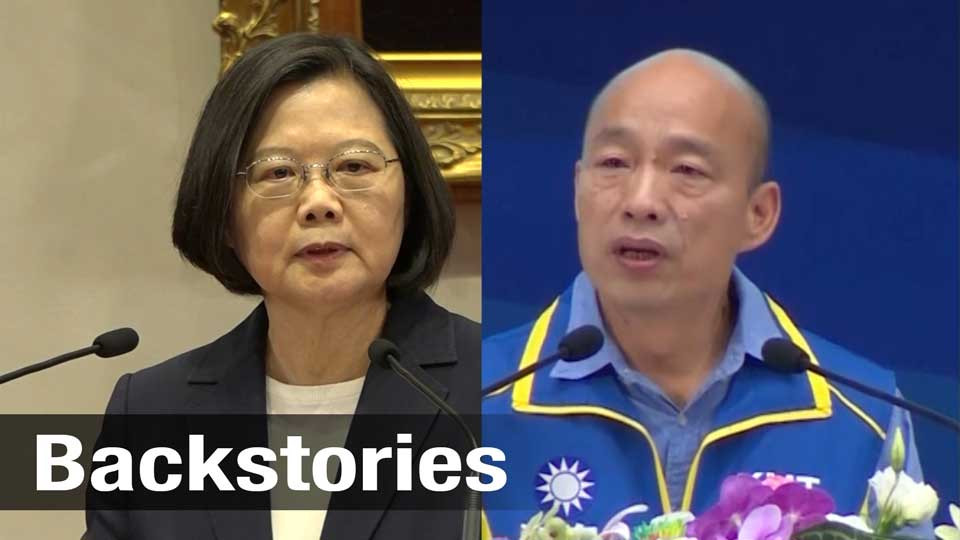
Gou fueled speculation he would run for president after announcing his intention to leave the main opposition Nationalist Party in early September. Gou had failed to secure the party's nomination and was widely expected to run as an independent.
Now, with his name off the ballot, the race is effectively down to two candidates: Incumbent President Tsai Ing-wen, and the man who beat out Gou, Han Kuo-yu. The current mayor of Kaohsiung powered the Nationalists to sweeping victories in local elections last November.
How will Gou's decision affect the election?
The two front-runners are expected to scramble after Gou's supporters.
At first glance, his decision would seem to benefit Han Kuo-yu. They are members of the same Nationalist Party, so it would seem natural for people who supported Gou to shift to Han.

And while some might, there's a large number of people, particularly younger voters, who do not support the Nationalist Party. Their votes are now likely go to Tsai Ing-wen.
What issues are at stake?
The election comes down to what kind of relationship the Taiwanese people want with China. Tsai's Democratic Progressive Party is pro-independence and Taipei has experienced increasing friction with Beijing under her leadership. A number of countries have cut ties with Taiwan in favor of China during her tenure, with the Solomon Islands becoming the latest to do so on Monday. Beijing has also stepped up military drills around the territory.

Tsai has been critical of Chinese president Xi Jinping's proposal to apply Hong Kong and Macau's "one country, two systems" principle to Taiwan. She has accused Beijing of trying to swallow the territory, and says things must remain the way they are.
On the other side, Han is pro-Beijing. He has proposed policies aimed at luring Chinese tourists back to Taiwan. Their numbers have diminished under Tsai's government. But he has been very cautious and has yet to propose a detailed plan on ties with the mainland.
China wants Tsai to lose. It remains to be seen how Beijing will try to influence voters during the campaign.
Who's the front-runner?
This is a close race. Earlier this year, Han was leading by nearly 30 percentage points. She suffered a huge setback in regional elections last November, prompting her to give up the party helm.
But Xi's "one country, two systems" comment has given Tsai a boost and she is now leading in some polls. The protests in Hong Kong have also helped her, with worry growing in Taiwan that Beijing will look to increase its influence to avoid a similar situation there.
On the other hand, there are concerns that if Tsai is re-elected, Taipei's relations with Beijing may worsen. This could have huge implications on the Taiwanese economy, making everyday life more difficult for ordinary citizens.

